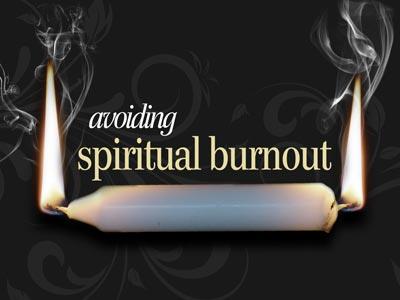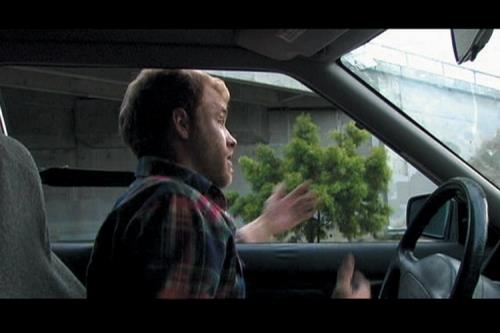-
From Bad To Worse Part 2 Series
Contributed by Jefferson Williams on Apr 29, 2025 (message contributor)
Summary: God gives Moses six promises for him to tell the Israelites
The Story of Moses : From Bad to Worse
Exodus 5-6 (Part 2)
Pastor Jefferson M. Williams
Chenoa Baptist Church
04-27-2025
The Darkness
When we came back from Florida, I was in a very dark place. I thought I had done what God called me to do but it went from bad to worse…to even worse.
We lost everything. I felt like a failure. Darkness enveloped me like a cloud. And I became irrational. I truly believed that Maxine and the boys would be better off without me.
It’s hard to say those words out loud. But I knew I needed to. I contacted five men that I respect and either on the phone or in person, and poured out my pain and dark thoughts.
What did they say? You’ll have to wait to the end of the sermon for…the rest of the story.
Review
Three weeks ago, we witnessed Moses’s day go from bad to worse. He finally responded in obedience and he went to Pharaoh and said, “Let my people go!”
Afterward Moses and Aaron went to Pharaoh and said, “This is what the Lord, the God of Israel, says: ‘Let my people go, so that they may hold a festival to me in the wilderness.’” (Ex 5:1)
Notice that it is not Moses saying “let my people go,” but God, Yahweh Himself, commanding Pharaoh to release His people from their bondage.
This was a declaration of war, an opening salvo in the showdown between Pharaoh and God.
Pharaoh said, “Who is the Lord, that I should obey him and let Israel go? I do not know the Lord and I will not let Israel go.” (Ex 5:2)
In Egypt, the Pharaoh was considered a god. In fact, he was known as the “neter nefer,” the perfect god. So Pharaoh hears this request for what it was - a challenge to his authority.
Also, think this through from Pharaoh’s point of view. So, you worship this God, Moses? Sounds like a pretty puny God? His people are my slaves so what does that teach us about who is the more powerful god around here?
God had already told Moses that Pharaoh wouldn’t let the people go unless he was compelled by a mighty hand. So this is going exactly how God said it would go.(Ex 3:19)
Then they said, “The God of the Hebrews has met with us. Now let us take a three-day journey into the wilderness to offer sacrifices to the Lord our God, or he may strike us with plagues or with the sword.” (Ex 5:3)
They needed that space because the animals that they would sacrifice were considered sacred to the Egyptians.
They then give Pharaoh the possible results of not letting the people go. God may decide to kill his entire labor force for their disobedience. He’s not to be trifled with.
But the king of Egypt said, “Moses and Aaron, why are you taking the people away from their labor? Get back to your work!” Then Pharaoh said, “Look, the people of the land are now numerous, and you are stopping them from working.” (Ex 5:4-5)
Pharaoh wasn’t having any of this nonsense. He saw this in a purely economic way. Moses, Aaron, and the elders of Israel were standing in his palace instead of working.
He used to be annoyed that the Israelites kept multiplying. But now it has provided free slave labor for all his building projects.
And Moses and Aaron are messing with the bottom line. What do you want to do, cripple the Egyptian economy? Back to work!
That same day Pharaoh gave this order to the slave drivers and overseers in charge of the people: “You are no longer to supply the people with straw for making bricks; let them go and gather their own straw. But require them to make the same number of bricks as before; don’t reduce the quota.
The same day. This is about to go from bad to worse.
Pharaoh is going to retaliate against this bubbling rebellion. He thinks he is playing chess while Moses and Aaron are playing checkers. ?
The slave drivers and the overseers were summoned and given a direct order. No more straw. Let them find their own. But the quotas remain the same.
The overseers knew this would be trouble.
They are lazy; that is why they are crying out, ‘Let us go and sacrifice to our God.’ Make the work harder for the people so that they keep working and pay no attention to lies.” (Ex 5:6-9)
It’s obvious, at least to Pharaoh, that the people are lazy, idle, like George McFly, slackers. The cure? More work. Harder work. The Hebrew reads, “Make the work heavy.”
The slave-drivers carry out Pharaoh’s instruction and take away their straw but demand the same number of bricks.
The bricks that Egyptian slaves made were bigger than today’s bricks and were made with clay and straw. Straw would help the brick to dry in the sun and make it strong.

 Sermon Central
Sermon Central



